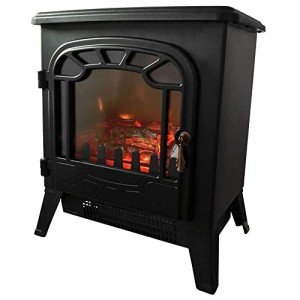댓글 0
등록된 댓글이 없습니다.


Fireplaces have actually long been a focal point in homes, offering both warmth and aesthetic appeal. In the UK, the varied climate makes fireplaces an important function in lots of houses. Whether one is trying to find a practical heating solution or a stylish centerpiece, comprehending the different types of fireplaces and the factors to think about when purchasing is crucial. This article will offer a comprehensive overview of the kinds of fireplaces readily available, factors to consider before buying, and answers to frequently asked questions.
When thinking about the purchase of a fireplace, one need to comprehend the vast variety of choices readily available. Here's a breakdown of the common kinds of fireplaces in the UK:
| Type of Fireplace | Description | Pros | Cons |
|---|---|---|---|
| Open Hearth | Traditional fireplace; wood-burning. | Timeless appeal, great heat distribution. | Ineffective, requires more upkeep. |
| Wood-Burning Stove | Confined wood-burning unit developed for efficiency. | High-efficiency heating, wide range of styles. | Requires space for wood storage, might need chimney lining. |
| Gas Fireplace | Utilizes natural or propane gas for heating. | Easy to utilize, low maintenance. | May need expert setup, can be less warm than wood. |
| Electric Fireplace | Uses electrical power to develop heat and flames. | Simple setup, does not require a chimney. | Generally less efficient for heating, might lack the atmosphere of real flames. |
| Bioethanol Fireplace | Burns bioethanol for a clean-burning flame. | No venting required, modern design. | Fuel can be costly, less heat output. |
| Pellet Stove | Utilizes compressed wood or biomass pellets. | Effective and ecologically friendly. | Needs electrical energy to operate, requires routine feeding and cleaning. |
Before dedicating to the purchase of a fireplace, numerous essential elements should be taken into consideration:
Purpose: Determine whether the fireplace will serve mainly for heating or as a visual addition to the room.
Kind of Fuel: Consider the type of fuel that best matches your requirements-- wood, gas, electrical energy, or alternative options.
Setup Costs: Assess the total setup expense, which might include chimney work, flue setup, or extra modifications to the home.
Area Availability: Check the area offered and make sure that the chosen fireplace fits conveniently within the designated location.
Style and Design: Choose a style that matches the existing decor of your home, whether modern, rustic, or traditional.
Upkeep: Understand the maintenance requirements connected with each kind of fireplace. For example, wood-burning alternatives might require routine cleansing of flues and chimneys.
Energy Efficiency: Assess the energy efficiency of the fireplace, particularly if it will function as the primary heating source.
Local Regulations: Be mindful of regional guidelines and standards relating to installations, especially for wood-burning and gas devices.
Answer: A wood-burning range or a pellet stove can be fantastic environmentally friendly options, as they use renewable resources. Bioethanol fireplaces are likewise clean and produce no damaging emissions.
Answer: Most gas fireplaces need venting to the outdoors, which can be through an existing chimney or through a direct vent system that vents through the wall.
Response: The size will depend on the space's square footage and the kind of fireplace. Usually, a specialist can calculate the BTUs (British Thermal Units) required based on the space size.
Response: Installation expenses can vary extensively depending upon the kind of fireplace and its intricacy, ranging from ₤ 500 for electric fireplaces to ₤ 5,000 for some custom setups of wood ranges or gas units.
Response: Yes, electric fireplaces are generally really safe, as they do not produce genuine flames or emissions. Nevertheless, similar to any electrical device, they must be used according to producer standards.
The choice to buy Fireplaces a fireplace in the UK is multifaceted and depends on numerous aspects, including design, effectiveness, purpose, and installation requirements. By comprehending the various kinds of fireplaces and evaluating personal requirements and choices, one can make an educated choice that boosts their home and experience. With the details provided, prospective buyers can embark on their journey to discover the ideal fireplace that combines performance with the convenience and heat that this ultimate function provides.
In summary, investing in a fireplace is more than simply choosing a heating alternative; it is about including character to a home while making sure comfort for many years to come.
0등록된 댓글이 없습니다.